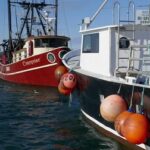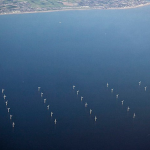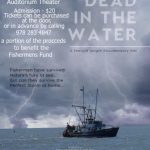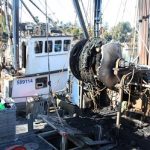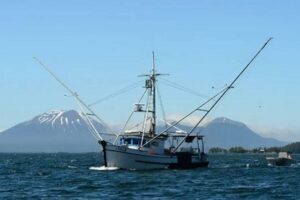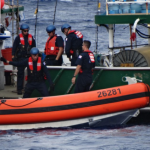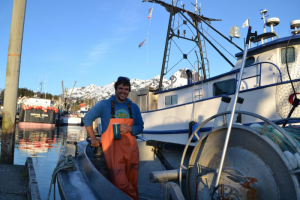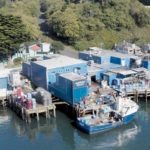Tag Archives: ocean aquaculture
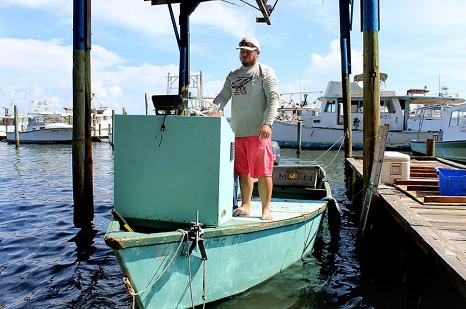
Opening a can of worms: Offshore fish farming in the Gulf of Mexico: Who benefits?
Velella Epsilon – the first fish farm in federal waters off the contiguous United States – would operate in the Gulf of Mexico, about 40 miles from Florida’s coast. Globe-shaped pens would hold fingerling almaco jack, a member of the amberjack genus, that would grow into 4-pound market fish within a year. The White House appears eager to open federal waters to aquaculture. With Executive Order 13921, President Donald Trump on May 7 ordered NOAA to winnow down regulations for both aquaculture and wild-caught fish.,, Ocean aquaculture is not without its environmental costs, such as escaped fish, parasites, and “fish sewage.” To James Bois, a commercial fisherman based here in Cortez, it’s unclear how a massive fish farm operation off the coast of Cortez will change his life. >click to read< 14:52
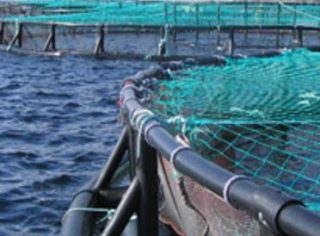
Harvesters Call for Better Consultation as Grieg Aquaculture Plans Expansion to Additional Sites
Fish harvesters are concerned about plans by Grieg Aquaculture to establish three additional sites east of Marasheen Island in Placentia Bay. The FFAW-Unifor is calling on the provincial government not to move forward with any project approval until they have pursued a proper consultation process with harvesters as the project may put their livelihoods at risk. Placentia Bay is a high-traffic area with the highest concentration of small fishing vessels during peak fishing times. Union president Keith Sullivan says previous consultations on the overall project have been insufficient, and information on site locations has been inconsistent. >click to read<12:30
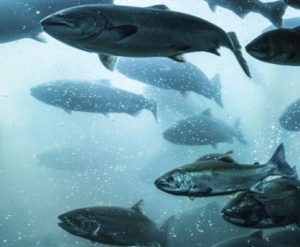
Russell Wangersky – Farmed Salmon: Left behind
It sometimes feels that we’re perpetually jumping onto a ship just about the same time as everyone else is abandoning it. And nowhere does it seem more like that than in the aquaculture business. As the plans steamroller ahead for a new massive Placentia Bay open pen Atlantic salmon project with the provincial government (and key regulator) fully onside, it’s hard to ignore that many others are moving in the other direction. In the state of Washington, a large-scale fish escape saw that state announce a ban on Atlantic salmon pen farming and a wind-down of existing operations. (The salmon aquaculture business in Washington is back under the microscope this month after 800,000 juvenile salmon had to be destroyed because they were found to be carrying a strain of Piscine orthoreovirus, which is dangerous for wild stocks of salmon.) >click to read<
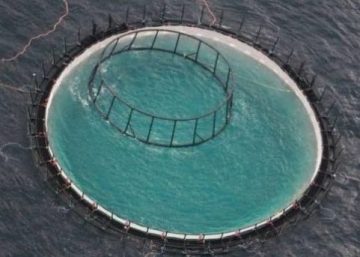
‘Nothing will be safe’: Fears after 20,000 ‘ravenous’ fish escape fish farm in Australia
There are fears thousands of “ravenous” kingfish that escaped a government jointly run fish farm in Australia will devastate a marine park’s wild fish population. Up to 17,000 predatory yellowtail kingfish, used to being fed automatically, are now hunting in marine park waters off Port Stephens, NSW. Last week, 20,000 of the fish escaped from a fish-farm sea cage, described as a “fortress pen”, that was destroyed in rough seas. About 3000 fish have been recaptured. >click here to read< 10:26 
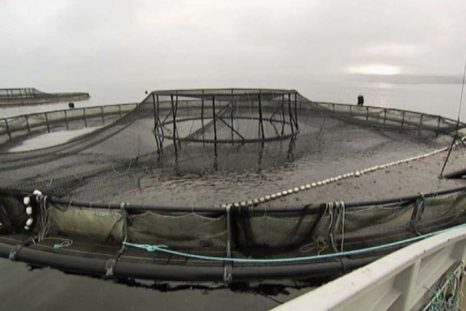
Tasmanian mayor heckled, ‘no confidence’ in minister, over fish farm pollution fears
The sometimes-heated community meeting was called to discuss Tassal’s plan for a fish farm in Okehampton Bay. A petition was also circulated calling on Glamorgan Spring Bay mayor Michael Kent to resign. The town appears to be splitting by some accounts over the fish farm proposal. Councillor Kent told the meeting he had been the subject of a campaign of mistruths and misinformation. Tensions boiled over in the crowd and there was loud heckling and booing. Bumper stickers opposing the project were distributed and slides shown of alleged instances of intimidation. Vision of the current state of Okehampton Bay was also shown. The meeting was also told the fish farm on the state’s east coast would have little economic benefit, and threatened the area’s marine health. continue reading the story here 12:52
Experts say BC salmon stocks not diminished by sea lice outbreak for now
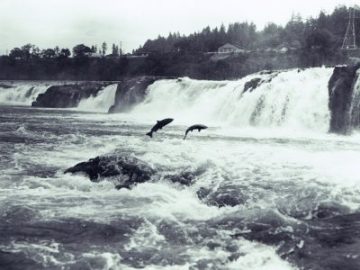 The price of salmon has shot up more than 15 per cent over the last three months, thanks to fish stocks being hit worldwide by an outbreak of sea lice. In Norway and Scotland, two of the world’s largest suppliers of salmon, sea lice outbreaks have made prices rise by a full 50 per cent, coupled with a huge algae bloom in Chile, the world’s second biggest producer of farmed salmon, and global production is down by nine per cent. But the market for Pacific salmon is not likely to see the same price spikes, according to Glen Spain of the Pacific Coast Federation of Fishermen’s Associations, who says that sea lice has so far been less of a scourge for Pacific Coast salmon. The tiny, naturally occurring parasite, found in both wild and farmed salmon, last proved to be a menace on the West Coast in 2015, when infestations were at their highest in five years. Read the story here 07:49
The price of salmon has shot up more than 15 per cent over the last three months, thanks to fish stocks being hit worldwide by an outbreak of sea lice. In Norway and Scotland, two of the world’s largest suppliers of salmon, sea lice outbreaks have made prices rise by a full 50 per cent, coupled with a huge algae bloom in Chile, the world’s second biggest producer of farmed salmon, and global production is down by nine per cent. But the market for Pacific salmon is not likely to see the same price spikes, according to Glen Spain of the Pacific Coast Federation of Fishermen’s Associations, who says that sea lice has so far been less of a scourge for Pacific Coast salmon. The tiny, naturally occurring parasite, found in both wild and farmed salmon, last proved to be a menace on the West Coast in 2015, when infestations were at their highest in five years. Read the story here 07:49
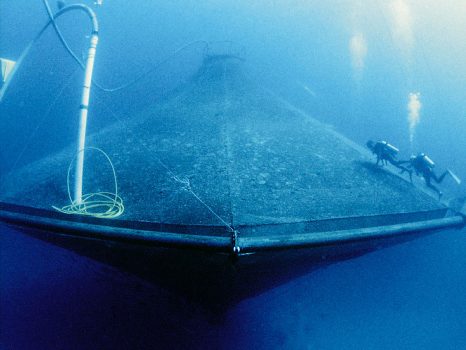
Feds must end push for ocean aquaculture
The world’s oceans are in trouble. Litter, urban runoff, dead zones, leaking oil rigs and other factors put stress on sea life, notably fish, and cause alarming changes in our marine environment. One thing we do know for sure is that we should not be adding stress and pollution to ocean ecosystems. That’s why it is so baffling that we are seeing a renewed major push by the federal government for industrial ocean fish farms. Lobbyists for the companies who build these aquaculture operations would have you believe the industry is a solution for preserving our marine environment by growing fish to ease the need for taking more fish from the wild. In reality, however, these facilities can exacerbate many of the problems already hurting our oceans. Open water fish farms are comprised of giant floating net pens with thousands of fish all eating, excreting and growing in one space. Cages used to contain fish are flow-through, meaning anything from the pens – excess feed, fish wastes, and any chemicals – can go directly into natural waters. Read the rest here 15:18

































